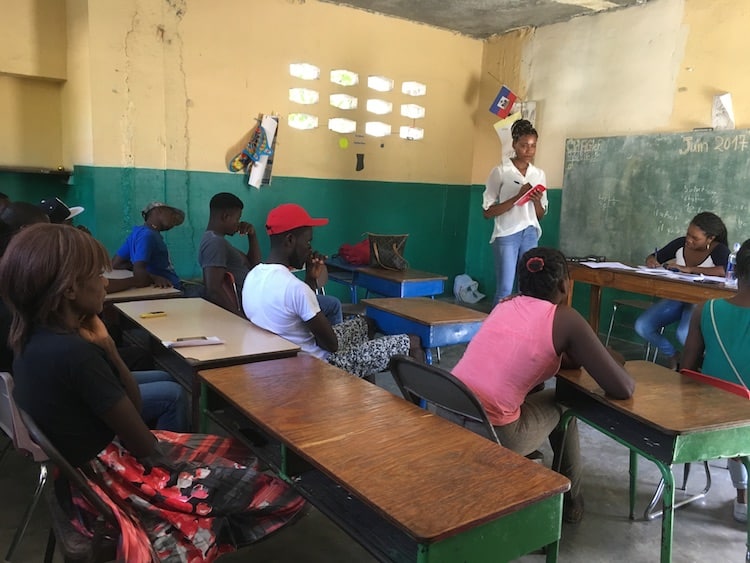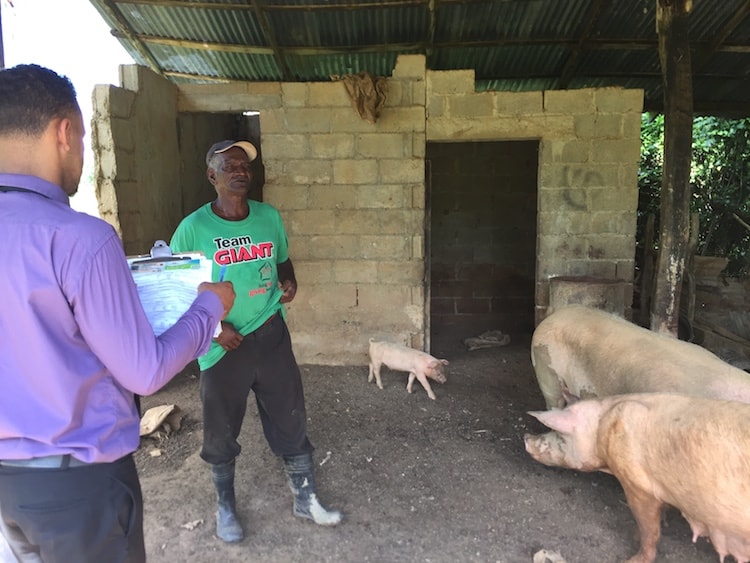From Haiti to China: 5 Pilots Begin to Reveal Digital Credit’s Uneven Impact
As demand for digital credit grows in the developing world, critical questions arise. How are mobile-based credit options helping (or hurting) low-income borrowers? How can available data sources be used to identify the borrowers most likely to benefit from these types of loans? How can we ensure that men and women have equal access to digital credit?
The Center for Effective Global Action is tackling these questions by way of its Digital Credit Observatory (DCO), supported by the Bill & Melinda Gates Foundation. In November, the DCO (our institution) awarded $1.6 million to researchers exploring the impacts of digital credit and related consumer protection measures globally. (See Caribou Digital’s “Evidence Gap Map” to better visualize the knowledge gaps that our research is addressing).
In spring 2017, the DCO awarded five short-term pilot grants to studies in Haiti, the Dominican Republic, India and China. Over the course of six months, each pilot shed light on some key aspect of digital credit, and its impact on low-income borrowers. Key takeaways, organized categorically, include:
Household Demand for Digital Credit
- Low-income households often turn to informal social networks and borrow small amounts repeatedly to cover immediate needs. Among 173 low-income discussion respondents in Haiti, most rely on friends and family, and remittances from abroad to cover short-term expenses. Over half of respondents reported planning expenses—including food, transportation and school fees—only one week in advance.
- Many of these financial transactions are already occurring over the phone. Most Haitians are accustomed to getting mobile top-up credit advances and transferring funds through mobile money, both common practices in developing countries.
- Some consumers still prefer borrowing from local banks because they are more familiar with the application process. A pilot to understand the constraints to digital loan adoption in rural China revealed that online applications were daunting and complex compared with the established loan processes of Chinese banks.
- Automated loan decisions may be too conservative for some consumers. In rural China, loan recipients complained that the product’s conservative risk model limited customers to receiving smaller amounts than they requested and comparatively less than what they could get from a local bank.

Small Business Demand for Digital Credit
- It is difficult for small businesses to get loans from traditional banks. In India, a series of informal interviews and a survey of over 6,000 merchants revealed that most merchants want access to credit to expand their business, but say there is too much paperwork to receive a formal bank loan – as well as a three-week waiting period.
- Digital credit could help satisfy the demand for credit among small businesses. In Jaipur, India, where 97 percent of store owners and 79 percent of merchants have access to a smartphone as well as a current or savings account, digital credit could be an efficient way to access capital while encouraging digital payment adoption among small businesses.
Gender Dynamics
- Gender may play an important role in deciding where people go for loans. In Haiti, women interviewed were more likely to ask for loans from friends and family, while men were more likely to use pawnshops. A possible explanation for this difference is that men are less inclined to admit their financial needs to acquaintances. This desire for confidentiality makes digital loan products particularly attractive to men.
- Adjusting credit-scoring algorithms to consider gender may increase financial inclusion for women. In the Dominican Republic, researchers looked at data for over 16,000 low-income loan applicants, finding that over one-third of women who were rejected using a traditional gender pooled credit-scoring algorithm would have been approved if a gender-specific model had been used.

Consumer Protection
- The rush to integrate digital credit with social media may alienate consumers and increase risk. In Beijing, a consumer protection study revealed concern over attempts by fintech companies to mimic social media platforms. For example, users were uncomfortable with, and even resistant to, being pushed to add real friends as “friends” within the loan app.
- Market capture by industry leaders could leave consumers with no alternative. In Beijing, little competition in the mobile money market and rapidly increasing network effects leave consumers with minimal product choice and the difficulty of opting out of China’s leading commercial social credit service.
- In rural China, banks are still considered more secure than digital credit for many consumers. Most respondents are divided on the extent to which they can trust fintech companies due to lack of faith in the company’s default detection mechanisms.
- Informal lending markets condition borrowers to ask for more money than they need. In Haiti, researchers found that this situation could increase the probability of default.
Initial insights from these five pilot studies paint an optimistic picture of the potential impact of digital credit to benefit low-income consumers in emerging markets. Nonetheless, this formative research points to some possible pitfalls of digital credit and the need to protect consumers. Over the next two years, the DCO will continue to build a portfolio of evidence in this space, and synthesize key lessons for stakeholders, including fintech firms, donors, NGOs and regulators.
Alexandra Wall supports Energy and Economic Growth, Financial Inclusion and Digital Credit Observatory programs at the Center for Effective Global Action (CEGA) at the University of California, Berkeley.
Natasha Beale is the program manager for the technology and development research portfolio at CEGA.
Carson Christiano leads CEGA’s partnership development efforts, incubating new research initiatives and working with faculty, donors and partners to generate rigorous evidence in priority areas (including technology, financial inclusion and energy).
Photos from the pilot studies in Haiti and the Dominican Republic. Credits: Oscar Barriga-Cabanillas (Haiti) and Sean Higgins (Dominican Republic).
- Categories
- Finance, Impact Assessment



